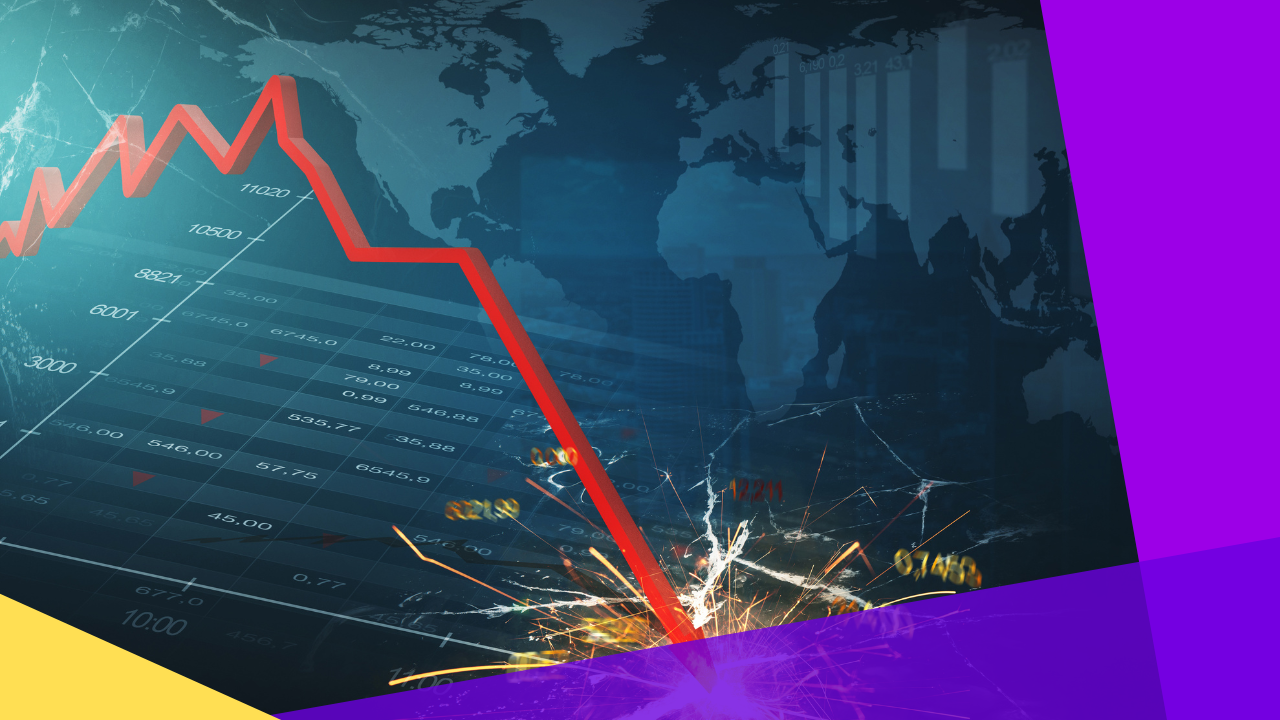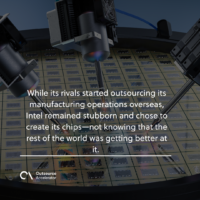Walking alone
Intel, which once led the world in chip design and manufacturing, has fallen to the bottom of the chipmaking industry.
It recorded net losses of $1.61 billion in 2Q 2024, a massive 209% drop from its $1.48 billion net profit in the comparable period. At one point last year, Intel was the worst-performing tech stock, while its rivals NVIDIA and Super Micro Computer were on top of the leaderboard.
Its fall from grace is due to a series of missed opportunities, including passing up a deal with tech firm Apple to design and manufacture chips for the iPhone before the seminal smartphone was launched.
But its biggest blunder was its unbreakable belief that it could do everything on its own. While its rivals started outsourcing its manufacturing operations overseas, Intel remained stubborn and chose to create its chips—not knowing that the rest of the world was getting better at it.
Lack of expertise
In 2020, Intel’s 7-nanometer chips—which experts believe would’ve drastically improved its market position—encountered a “defect mode that resulted in yield degradation.” This clearly illustrated a lack of expertise within Intel, but the tech firm has remained resolute in trusting in its capabilities.
This insistence has yet to lead to success. Manufacturing delays have pushed Intel’s client base to look for partners who can keep pace with their demands. Apple, for example, started placing massive orders with Taiwan Semiconductor Manufacturing Company (TSMC) to build its iPhone chips in 2014. TSMC used its earnings to upgrade its manufacturing plants, which eventually overtook Intel’s.
Now, TSMC is the world’s largest semiconductor chip manufacturer, with a market share of over 50%. Its clients include Apple, NVIDIA, AMD, Qualcomm, and MediaTek, all of which call TSMC when they’re about to launch a new product.
Mounting a comeback
There are signs of a comeback. The Biden administration’s CHIPS and Science Act has made Intel the cornerstone of domestic manufacturing. It has foundries in Arizona, New Mexico, Oregon, and Ohio and is looking to manufacture its chips for future clients.
However, experts warn that these efforts may not be enough to close the gap with TSMC. Prospective clients know about Intel’s past failures and would likely avail themselves of the services of others. One also has to account for the time it will take for these factories to come online. TSMC is already way ahead of the game, while Intel is barely starting.
With its back against the wall, Intel has finally decided to try outsourcing. It recently handed over the development of Falcon Shores AI accelerators to TSMC, particularly the utilization of the 3nm process. It has also collaborated with other Taiwanese companies in various aspects of semiconductor and packaging technology.
The company has also significantly increased its outsourcing budget, spending $19 billion in recent quarters, and this trend is expected to continue as Intel seeks to correct its mistakes and remain competitive in the chipmaking industry.
Whether Intel rises from the ashes is a matter of wait-and-see. But finally admitting that the rest of the world has gotten better is a step in the right direction. Microchips and semiconductors hold the keys to economic prosperity. Trying to play catch-up to well-established players is an exercise in futility. Outsourcing is the tool that could make Intel relevant once again.
The question for your business
Have you considered outsourcing certain operations to third-party experts?
Read more thought leadership articles here:




 Independent
Independent





















